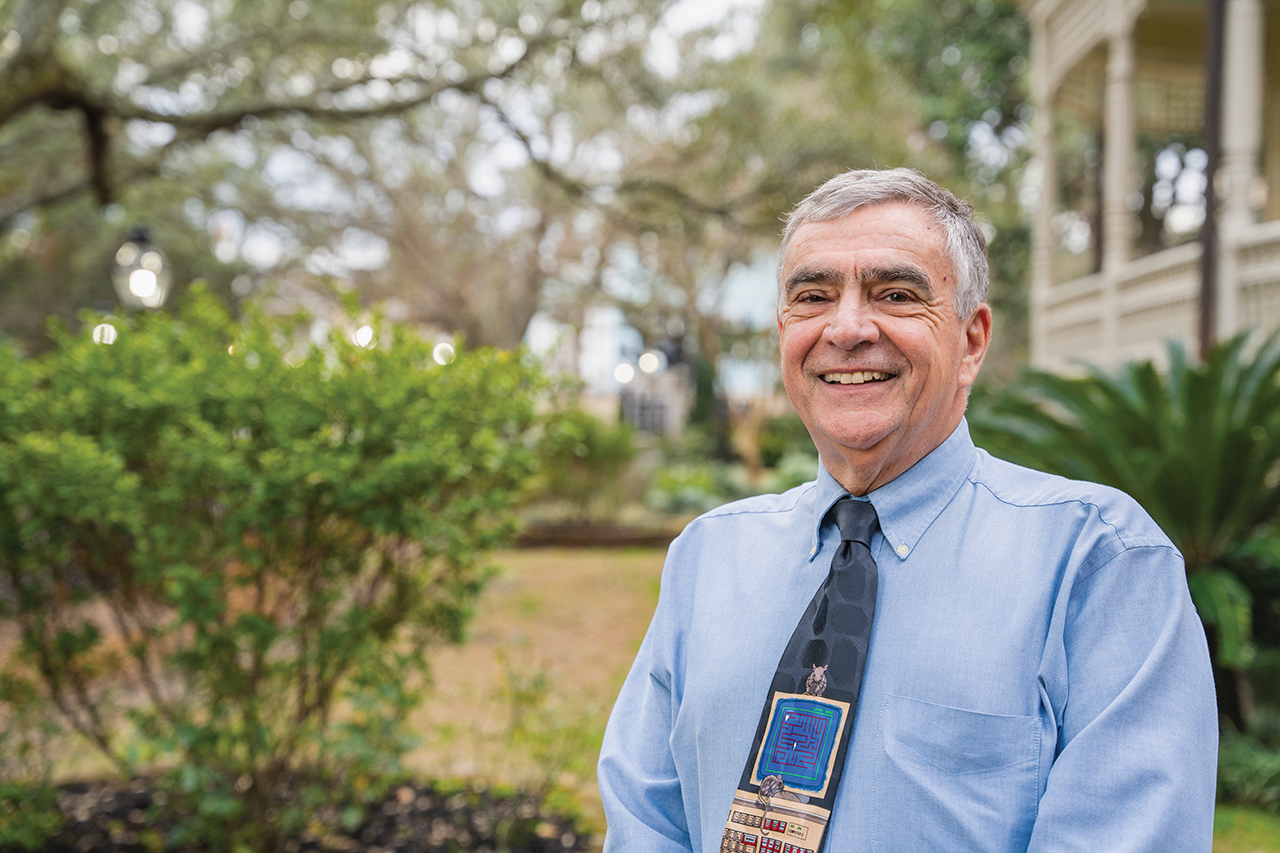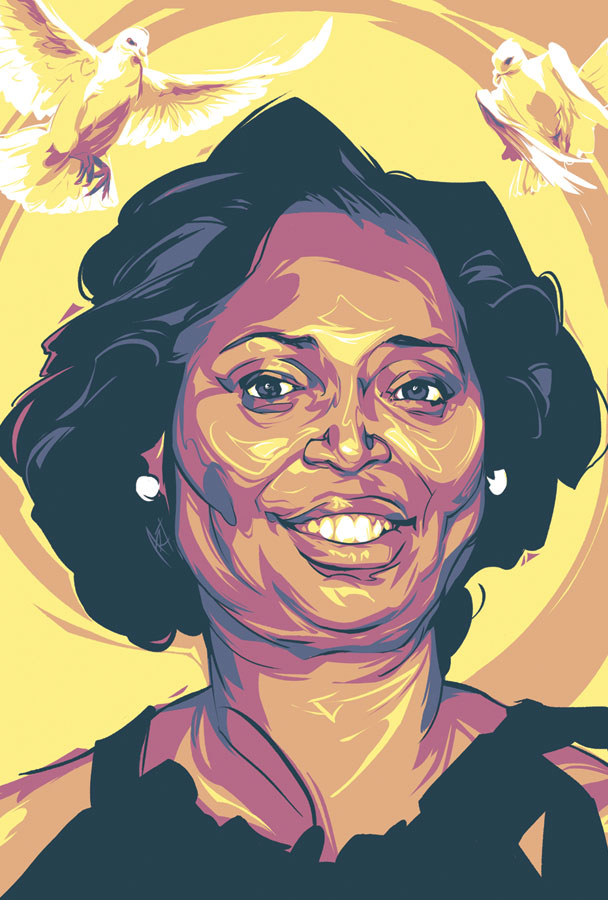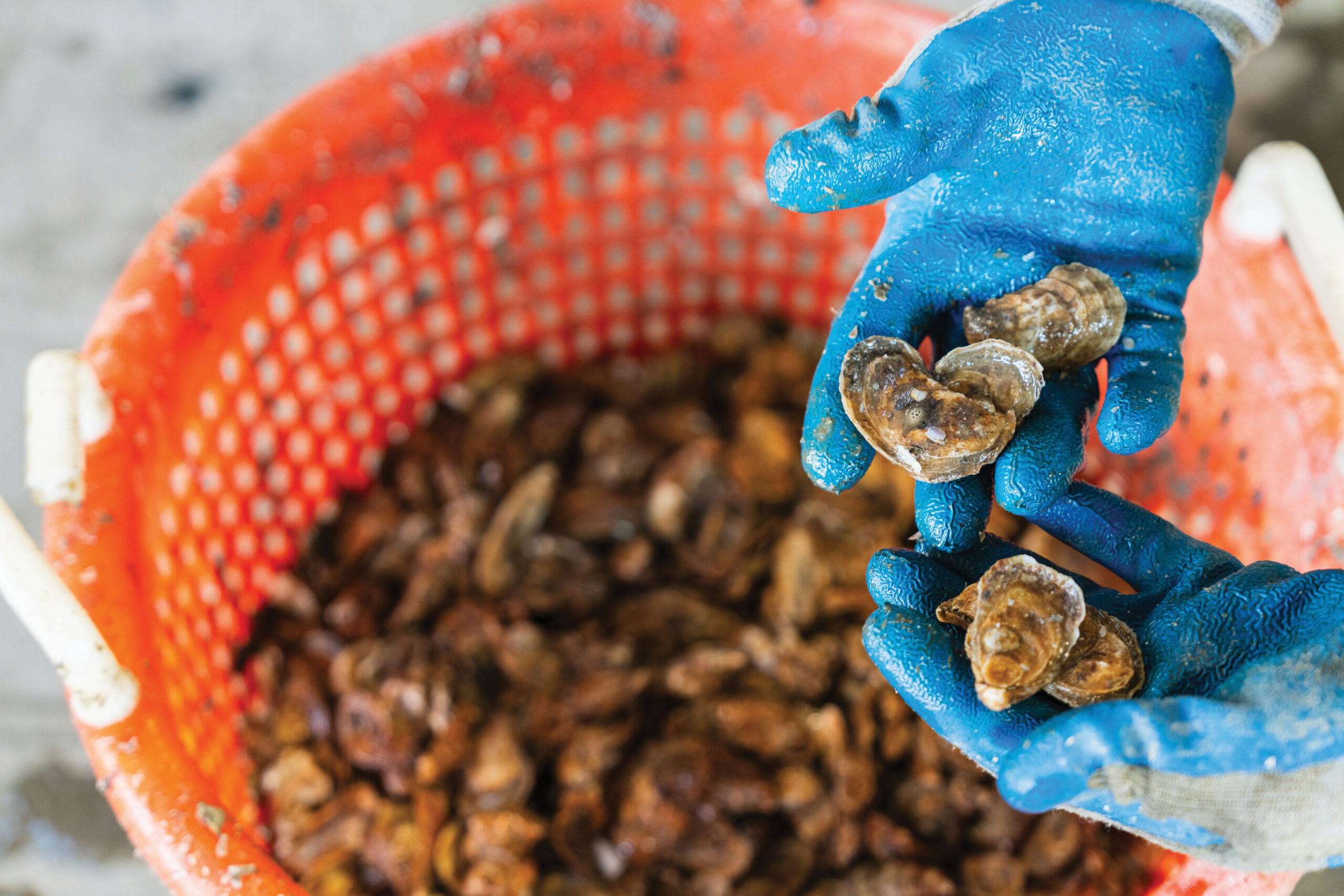A Calculated Risk by Math Professor
This one-time mathematics professor looks back on the leap of faith he took 40 years ago to help start the Department of Computer Science.
By George Pothering

When I joined the College of Charleston as an assistant professor 45 years ago, I could not have foreseen finishing my career in the Department of Computer Science with 17 full-time faculty and six undergraduate and two graduate degree programs. I was hired to teach mathematics. The College did not have much of a computer science curriculum, much less a department, in 1978. Most liberal arts institutions did not.
Getting to where we are now required taking some risks institutionally – and personally – and having those risks pay off.
The first of these happened around the time I came to CofC, when then-President Ted Stern saw institutions nationwide forming undergraduate computer science programs and wanted the College to join them. The College decided to add two computer science programs and to house them within a dedicated department. The decision to form a CS department differed significantly from what other medium-sized liberal arts colleges were doing at the time. Most based computer science programs within existing departments, such as mathematics, business or physics. With most computer science Ph.D.s. joining research universities, industry or the federal government, it was easier for liberal arts schools to draw on computer science expertise among existing faculty or to hire computing-experienced adjunct faculty.
In forming a stand-alone CS department, the College signaled a commitment to the field that it hoped would attract and retain qualified faculty from other departments and institutions. It worked.
The CS department began in 1980 with Richard Crosby, a physicist, as its chair and only full-time faculty member. Thanks to Dick’s tireless efforts, by 1984, the department had five full-time faculty, myself included. None of us had a Ph.D. in CS, but three of us had each completed at least nine graduate computer science courses. We were tenured and promoted. Three of us remained in the department for over 30 years, providing essential stability, especially in the early years.
The College’s early risk was rewarded as this stability allowed the department to grow. Advances in rank and many years in the department were the early faculty members’ rewards for the risk we took in joining a new department with uncertain prospects.
The College continued taking risks as the field of computer science evolved. In 2005, the first students enrolled in the discovery informatics program – the first undergraduate program of its kind in the U.S. Initially, its unfamiliar name and demanding requirements prevented the program from growing as hoped, but faith in the future of the program and a crucial name change – data science – helped the program take root and mature.
Five years later, the department launched computing in the arts, one of only a handful of such undergraduate programs in the U.S. Its growth was meteoric, however, and today it has the second highest number of majors of the department. More than 50% are women.
Currently, colleges and universities are being challenged by rising costs and an impending decline in the number of high school students. In response, they’re questioning the relevance of many programs. It is my hope that the College’s past successes in taking risks will strengthen its willingness to take new ones. To quote T.S. Eliot: “Only those who will risk going too far can possibly find out how far one can go.”
After earning a Ph.D. in mathematics from Notre Dame in 1977, George Pothering taught at the College for 45 years before retiring last year.



